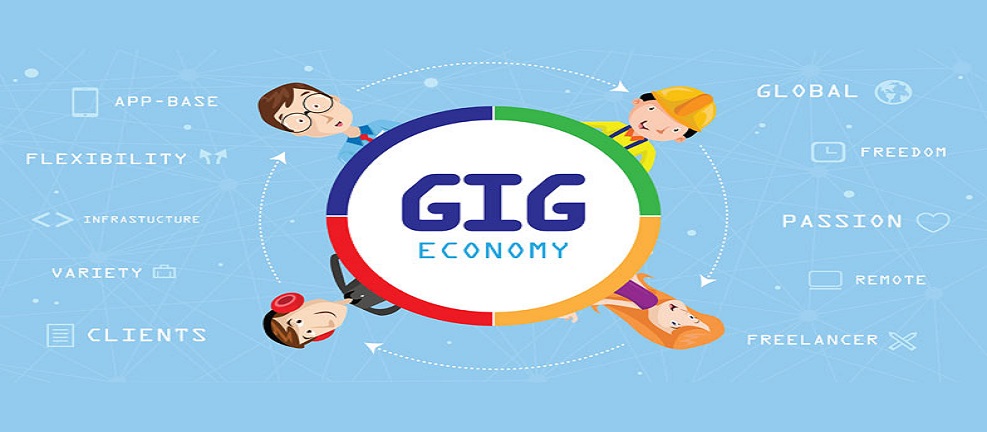The gig economy has undergone a meteoric rise over the past two decades. As highlighted in the World Development Report 2019, over 84 million people globally participate in the gig economy, making up about 3% of the global labor force. This shift reflects a profound transformation in how businesses operate, driven largely by digital transformation (DT).
DT has not only redefined where and how we work but has also altered the very fabric of business operations, enabling companies to tap into diverse talent pools and focus on delivering value efficiently.
What is Digital Transformation in the Gig Economy?
Digital transformation refers to integrating digital technologies into every aspect of business, fundamentally changing how companies operate and deliver value. In the gig economy, DT powers seamless collaboration across geographies, streamlines processes, and provides real-time access to talent and data.
From AI/ML experts to graphic designers, and even artisans and drivers, DT has democratized access to opportunities, breaking down geographical barriers and fostering inclusivity.
Benefits of Digital Transformation in the Gig Economy
1. Access to Diverse Talent Pools
Businesses can source the exact skills they need, whether it’s a cloud engineer in Asia, a data scientist in Europe, or a UX designer in the U.S. This global access ensures organizations find the right expertise without compromise.
2. Boosted Productivity
Remote working, a hallmark of DT, allows workers to focus better, reducing distractions common in traditional office setups. Studies have shown that remote workers are often more productive than their in-office counterparts.
3. Cost Savings
Companies save on infrastructure, utilities, and overheads, while employees save on commuting costs. According to a 2015 Stanford study, remote work not only saves money but also improves job satisfaction.
4. Sustainability
Remote work significantly reduces the carbon footprint by cutting down on daily commutes and physical office requirements.
5. Real-Time Collaboration
Digital tools enable instantaneous communication and project management across teams, no matter where they are in the world.
The Financial Shift: Payments in the Gig Economy
The gig economy has also disrupted traditional payment structures.
-
Hybrid Transactions: Payments to gig workers are neither purely B2B nor B2C but a blend of both, requiring platforms to innovate payment solutions.
-
Real-Time Payments: Workers demand faster payouts, prompting businesses to adopt digital wallets, instant payment platforms, and blockchain-based systems.
Traits of Businesses Thriving in the Digital Transformation Era
1. User-Centric Focus
Successful businesses prioritize solving customer problems over chasing the latest tech trends. Digital transformation should always serve a purpose—enhancing user experience and creating tangible value.
2. Leveraging Existing Infrastructure
Instead of reinventing the wheel, businesses should build upon established systems. Seamless integration ensures smoother transitions and wider adoption.
3. Speed and Efficiency
In a world accustomed to instant gratification, businesses must operate in real time, ensuring fast responses without compromising on quality or security.
Challenges in Implementing Digital Transformation
While the advantages are compelling, DT comes with its share of hurdles:
-
Skill Gaps: Employees need to upskill to adapt to new technologies.
-
Resistance to Change: Transitioning from traditional methods to digital platforms requires a cultural shift.
-
Cost of Implementation: Digital transformation requires initial investments in technology and training.
AiDOOS: Empowering Businesses in the Digital Age
AiDOOS simplifies digital transformation for businesses by leveraging the gig economy. Our platform connects organizations with top-tier Subject Matter Experts (SMEs) worldwide, enabling seamless remote collaboration.
Virtual Delivery Center (VDC) Advantage
-
On-Demand Expertise: Access specialized skills as needed without the overhead of hiring full-time staff.
-
Cost Efficiency: Pay only for completed tasks, ensuring transparency and budget control.
-
Streamlined Operations: Real-time updates and project tracking ensure accountability and quality.
Why AiDOOS?
-
Flexibility: Scale teams up or down as projects evolve.
-
Global Access: Tap into a network of SMEs across 100+ IT categories.
-
Efficiency: Focus on your core business while we handle IT maintenance and development.
With AiDOOS, businesses can harness the power of the gig economy to drive digital transformation, ensuring agility, innovation, and growth.
Conclusion
The gig economy, powered by digital transformation, is not just a trend—it’s the future. As businesses adapt to this new normal, leveraging platforms like AiDOOS will be critical to staying competitive.
By connecting with global experts, businesses can overcome traditional limitations, streamline operations, and achieve unparalleled efficiency.
Transform your business with AiDOOS. Embrace the future of work today.

